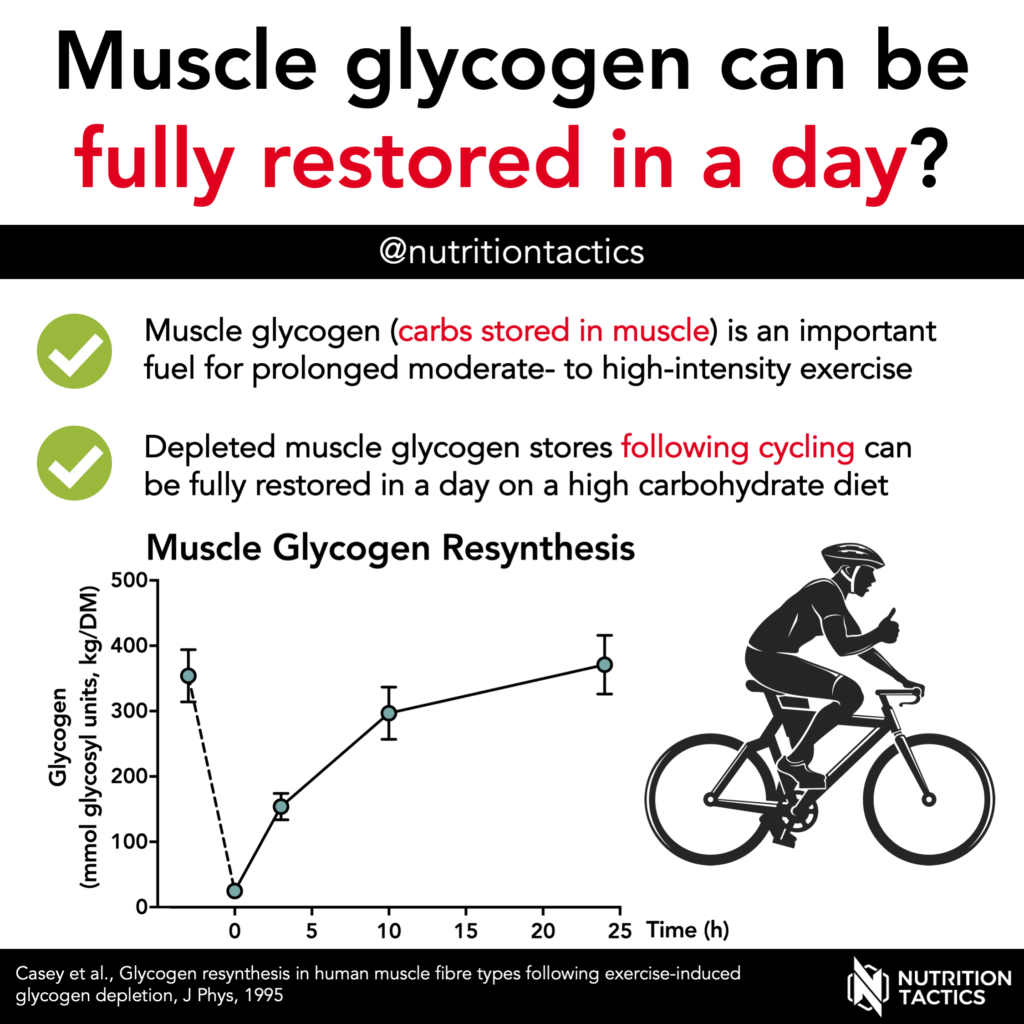Can muscle glycogen stores be fully recovered in a day?
Carbohydrates are the main fuel source during moderate to high-intensity prolonged exercise (1). A limited amount of carbohydrates is stored in the liver and muscle as glycogen.
Muscle glycogen depletion has been associated with fatigue. Therefore, muscle glycogen stores should be maximized to optimize performance during prolonged exercise.
However, a long and intensive exercise session can deplete muscle glycogen stores. Carbohydrate ingestion will help rebuild (resynthesize) muscle glycogen. But how long does it take before depleted muscle glycogen stores are restored?
This study investigated the resynthesis of muscle glycogen after prolonged cycling until exhaustion (~3 h). Subjects were instructed to consume a high-carbohydrate diet (>80% of total energy coming from carbs) after the exercise session.
Muscle glycogen stores were almost fully depleted at the end of the intense exercise session. However, the carbohydrate stores in the muscle were completely recovered 24 hours after the exercise.
However, note that this can differ between sports. For example, muscle glycogen recovery is slower after soccer exercise (2). This is likely because muscle damage can impair muscle glycogen synthesis.
Go to the next infographic in the carbohydrate series:
Muscle glycogen is not limiting during resistance exercise?


Leave a Reply